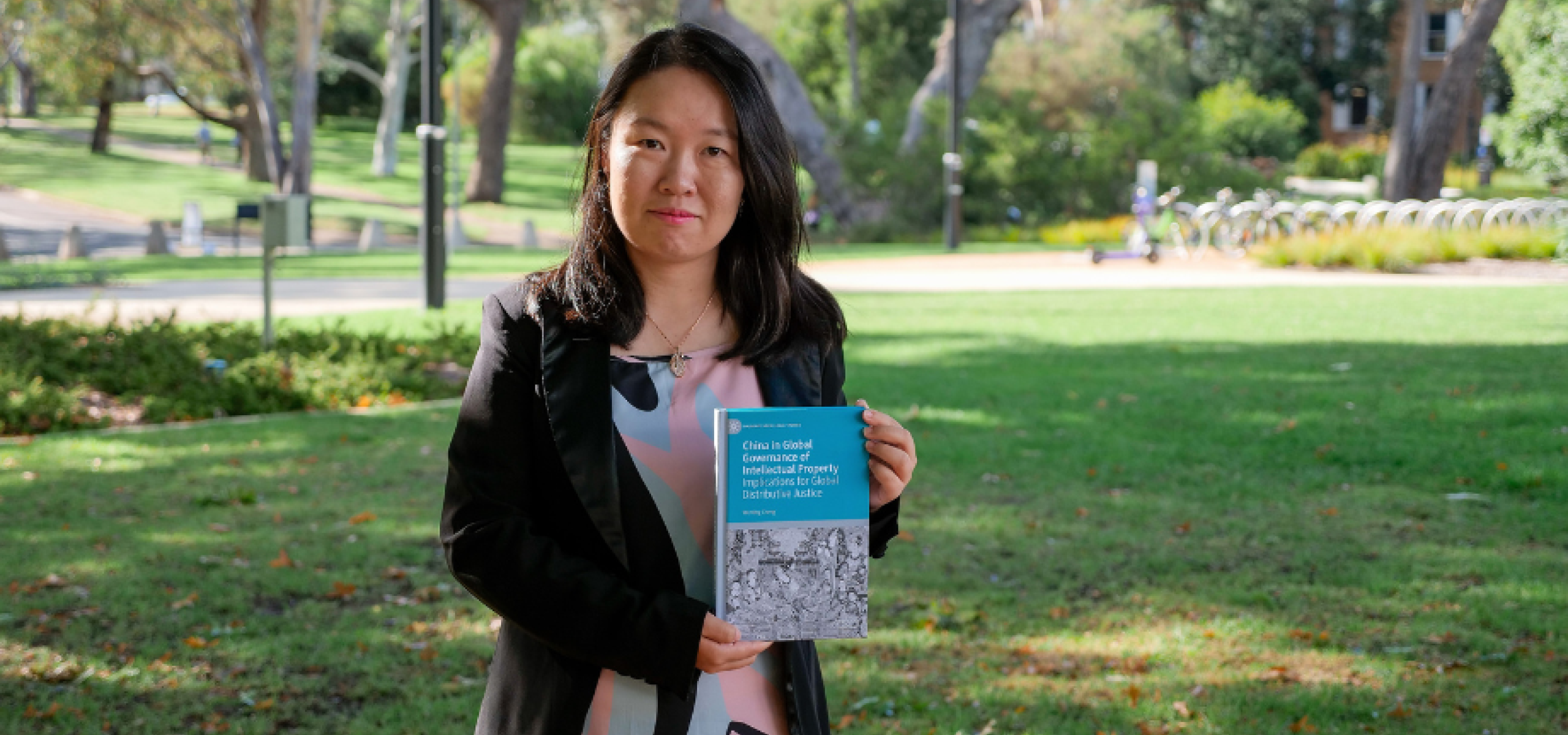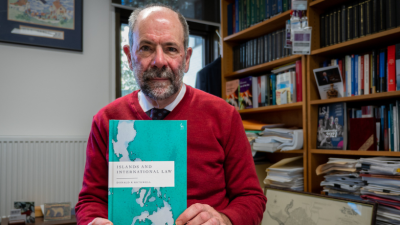
In her new book, Dr Wenting Cheng analyses the actors, principles, strategies of China’s IP engagement using an interdisciplinary approach.
China’s engagement in global IP governance is a complex and cross-cutting issue, and there is no linear storyline.
In an era marked by China's growing influence and its expanding role on the global stage, there is heightened interest in understanding its involvement in various realms of global governance.
One crucial area that has captured significant attention is how China is engaging in the rules and regulations that governs intellectual property (IP) on a global scale.
Within this landscape, China's emergence as a key player in global IP governance has sparked both curiosity and controversy.
Now, a new book by Dr Wenting Cheng delves into China's engagement in global IP governance and the implications for distributive justice.
“This book is not about Chinese intellectual property per se, but about China’s global intellectual property engagement at various levels and in concrete cases,” Dr Cheng said, “This focus enables insights into global distributive justice that are otherwise not visible.”
China in Global Governance of Intellectual Property: Implications for Global Distributive Justice (Palgrave Macmillan, 2023) tackles the topic through a regulation-oriented interdisciplinary approach.
“Drawing on principles of global distributive justice nationally and internationally, this book contributes to a critical understanding of what China’s rising role in global IP governance means for the rest of the world,” Dr Cheng said.
A regulation-oriented interdisciplinary approach
In her book, Dr Cheng analyses the actors, principles, strategies of China’s IP engagement using an interdisciplinary approach.
She applies this approach to five under-researched case studies: geographical indications, the requirement for disclosing sources of genetic resources in patent applications, IP and standardisation, China’s bilateral IP engagement, and its multilateral IP engagement.
Dr Cheng selected these case studies because “in areas of traditional major types of intellectual property, such as patents, trademarks and copyright, global rules were settled since the TRIPS Agreement and there was not much room for China or any country to substantially contributed to their global governance”.
Furthermore, these cases provide an opportunity to discuss the actors involved in China’s international IP engagement.
“The book also discusses principles that guide or constrain China’s engagement, and the strategies that are used to manage sometimes contesting principles,” Dr Cheng said.
Originally trained in IP law, Dr Cheng found this selection of case studies “opened a new horizon” for her to “understand the interaction between IP and other areas of law”, as well as the “controversy around the entitlement-based framing of IP”.
She hopes that IP scholars also find the case studies “complement their focus on patent and copyright issues”, while researchers “interested in global governance find the analytical framework helpful for their research design.”
Drawing a strategic focus
In her book, Dr Cheng identifies two groups of strategies that China engages in global IP governance: forum and agenda-related strategies, and principle-related strategies.
Forum and agenda-related strategies deal with questions of where and how China advances its IP agenda within the complex web of international institutions.
These strategies include multi-forum engagement, dissembling, and cohesive responsive engagement.
“On the other hand, principle-related strategies are those that aim to achieve a certain principle or manage contesting principles,” Dr Cheng said.
This includes modelling and balancing, which has allowed China to align its domestic IP laws with international standards, meet its treaty obligations and establish transnational networks.
Implications for global IP governance
The case studies in this book reveal several major implications of China’s engagement in global IP governance.
In terms of IP standards, Dr Cheng said the strategy of modelling has meant the “Chinese IP system has moved closer to the US or EU systems than might have been expected, most prominently in the area of IP enforcement”.
However, when it comes to geographical indications, China also faced a “compliance dilemma” by accepting potentially conflicting standards in agreements with the EU and the US.
In the case of disclosure obligation, China has made moves to enhance global distributive justice by supporting the amendment to the TRIPS article 29bis..
Although Dr Cheng said “China’s resistance to high IP enforcement standards is diminishing”, which “could be detrimental to global distributive justice from a cosmopolitan perspective”, China has refrained from imposing its high IP protection standards on other countries in its own free trade agreements with developing countries.
“However, this is more an outcome of managing contesting principles than deliberately following non-imposition as moral guidance,” Dr Cheng said.
Scholarly insights
China in Global Governance of Intellectual Property: Implications for Global Distributive Justice is based on Dr Cheng’s PhD thesis, which she undertook at the ANU School of Regulation and Global Governance from 2014 to 2018, supervised by Professor Peter Drahos and Professor Susan Sell.
Her thesis focused on whether China’s large-scale deployment of IP in various markets would make it a global IP regulatory power.
“Changing circumstances after my thesis submission and reflection on the disruptive impact of the COVID-19 global pandemic and climate catastrophes have stimulated the rethinking of IP from its beginning and the fundamentals,” she said.
Dr Cheng said this is because global governance, in its current form, cannot adequately respond to existential threats.
“In this context, there are deeper questions about the role that China plays in global governance,” she said.
“In particular, what China has delivered in its participation in global governance and how China’s involvement helps address the common challenges that global governance is needed in the first place.”
Therefore, Dr Cheng’s book focuses on the concept of engagement to “facilitate a more nuanced understanding of the role that China plays in global IP governance than the dichotomy of rule-taker or rule-maker”.
In her book revision, Dr Cheng takes a step back to “situate IP in its social and historical context and further distil broader implications of China’s global IP engagement based on paradigms of distributive justice”.
Professor Keith Maskus (University of Colorado) said the book is “fascinating and highly original” and “scholars of global IPR governance will learn a great deal by reading this volume.”
Dr Carlos Correa, Executive Director of the South Centre, also commented that “scholars, policy makers and all those interested in better understanding the dynamics in the second largest world economy and its role in global IP governance will benefit from reading this well-researched contribution”.
In addition, an anonymous reviewer said “this is a much-needed contribution in the fields of international law, international political economy, and international organisations.”
Purchase your copy of China in Global Governance of Intellectual Property: Implications for Global Distributive Justice (Palgrave Macmillan, 2023) here.


